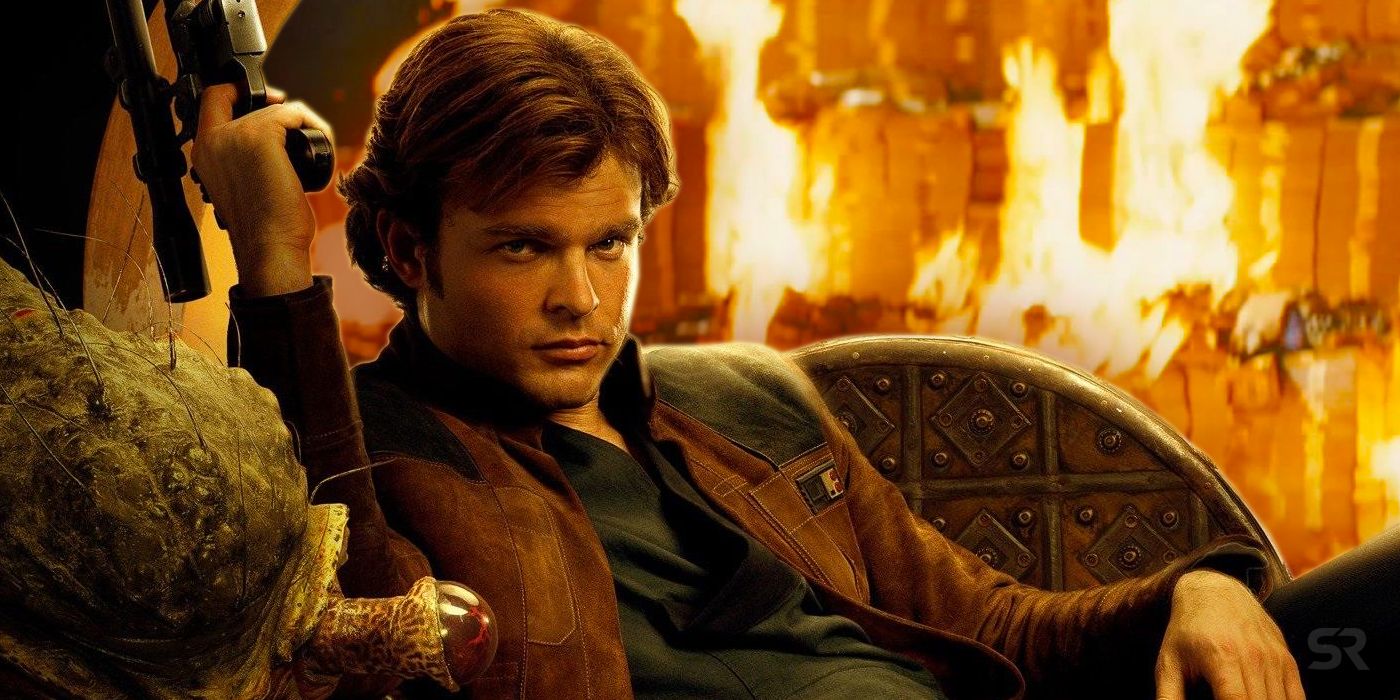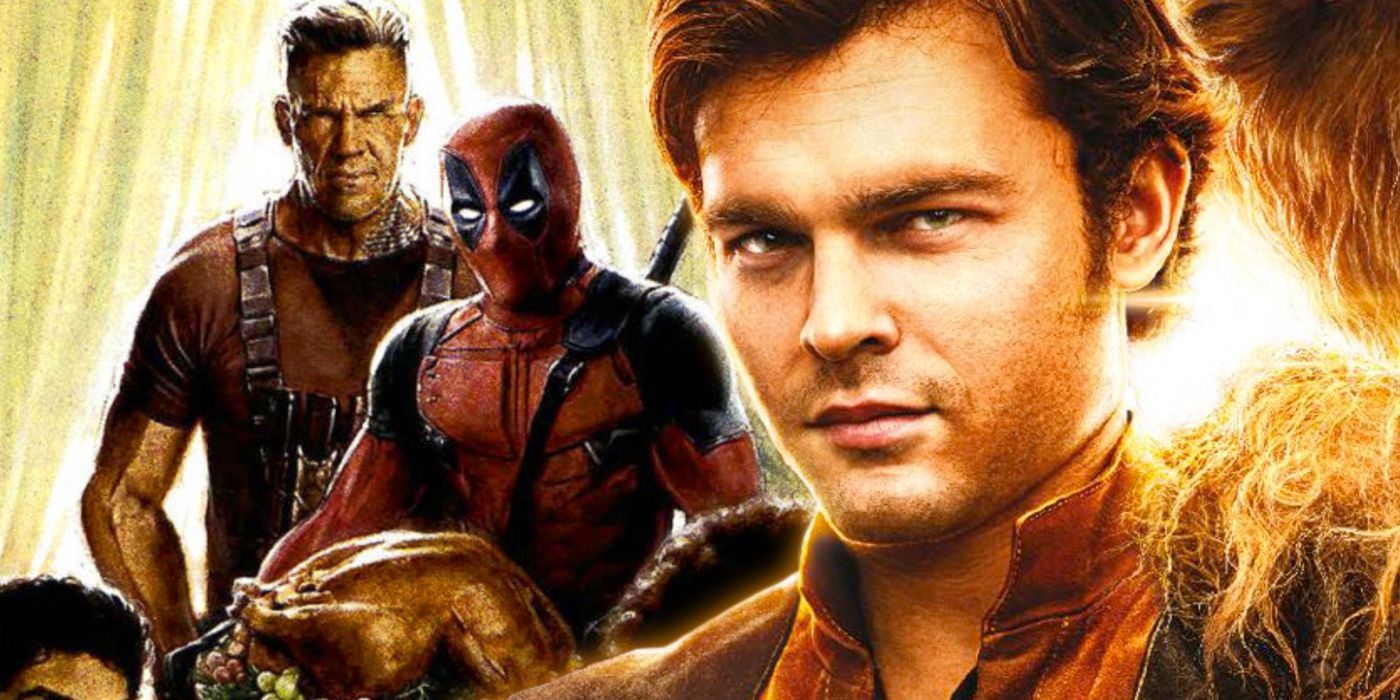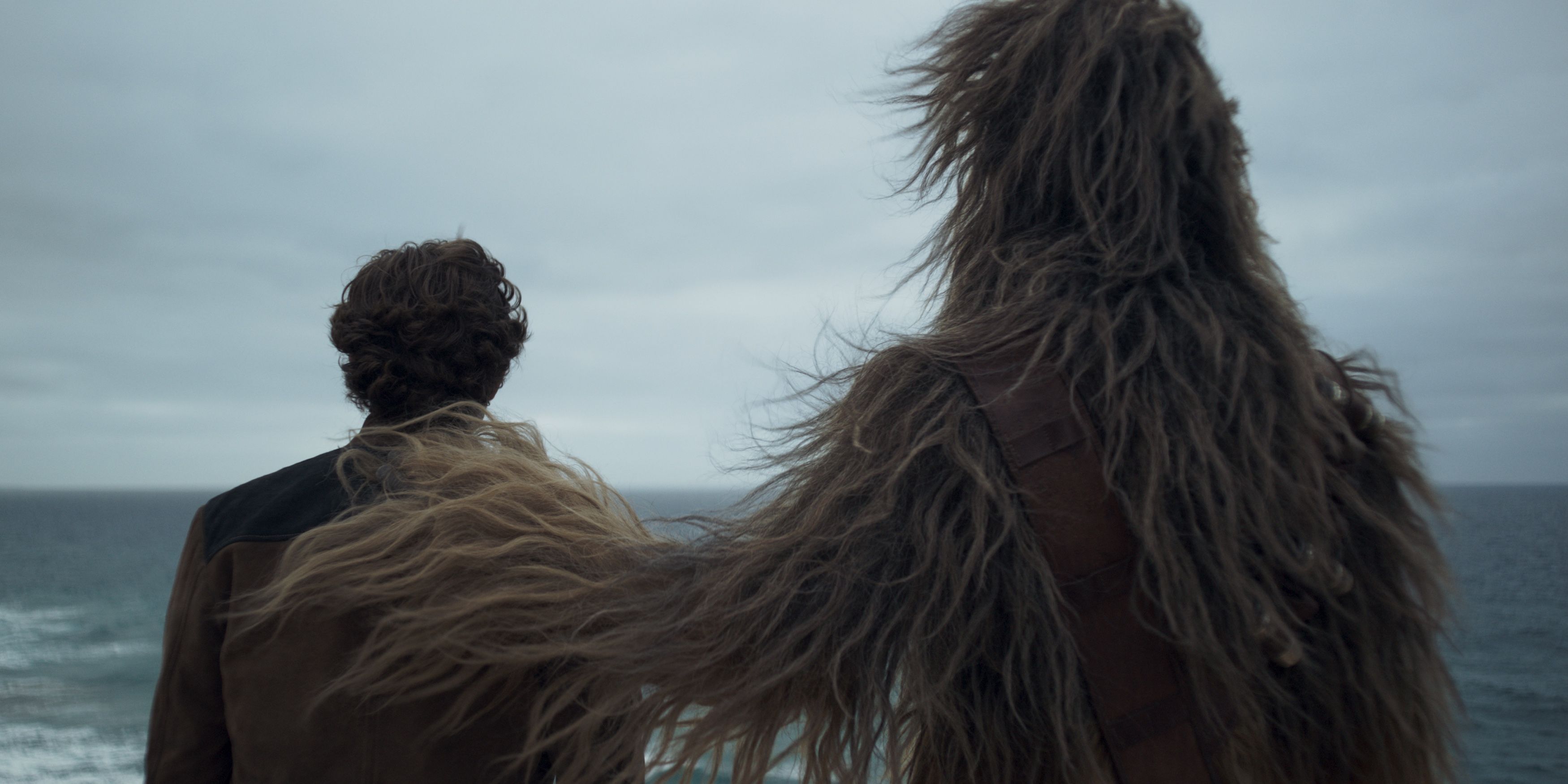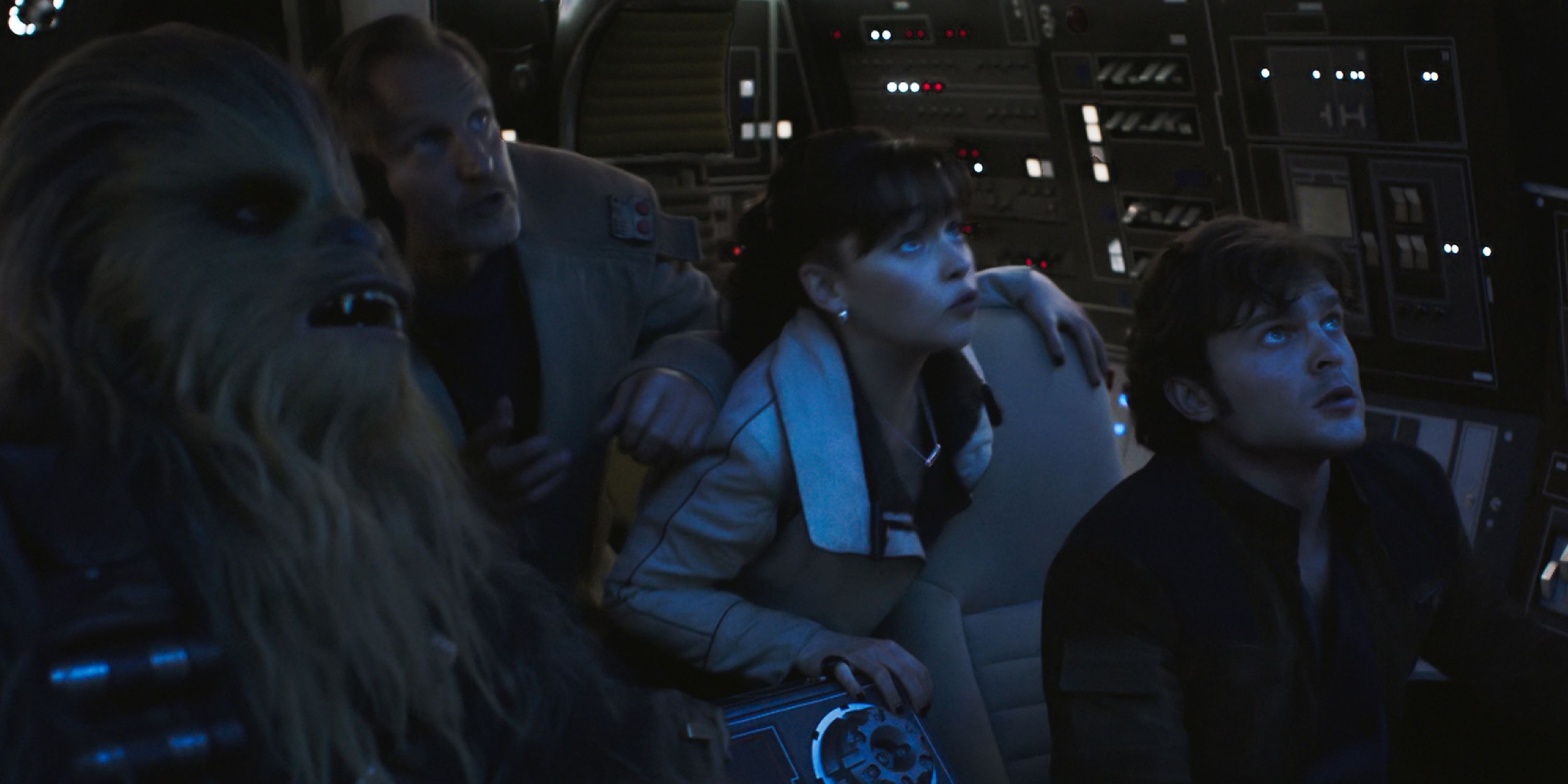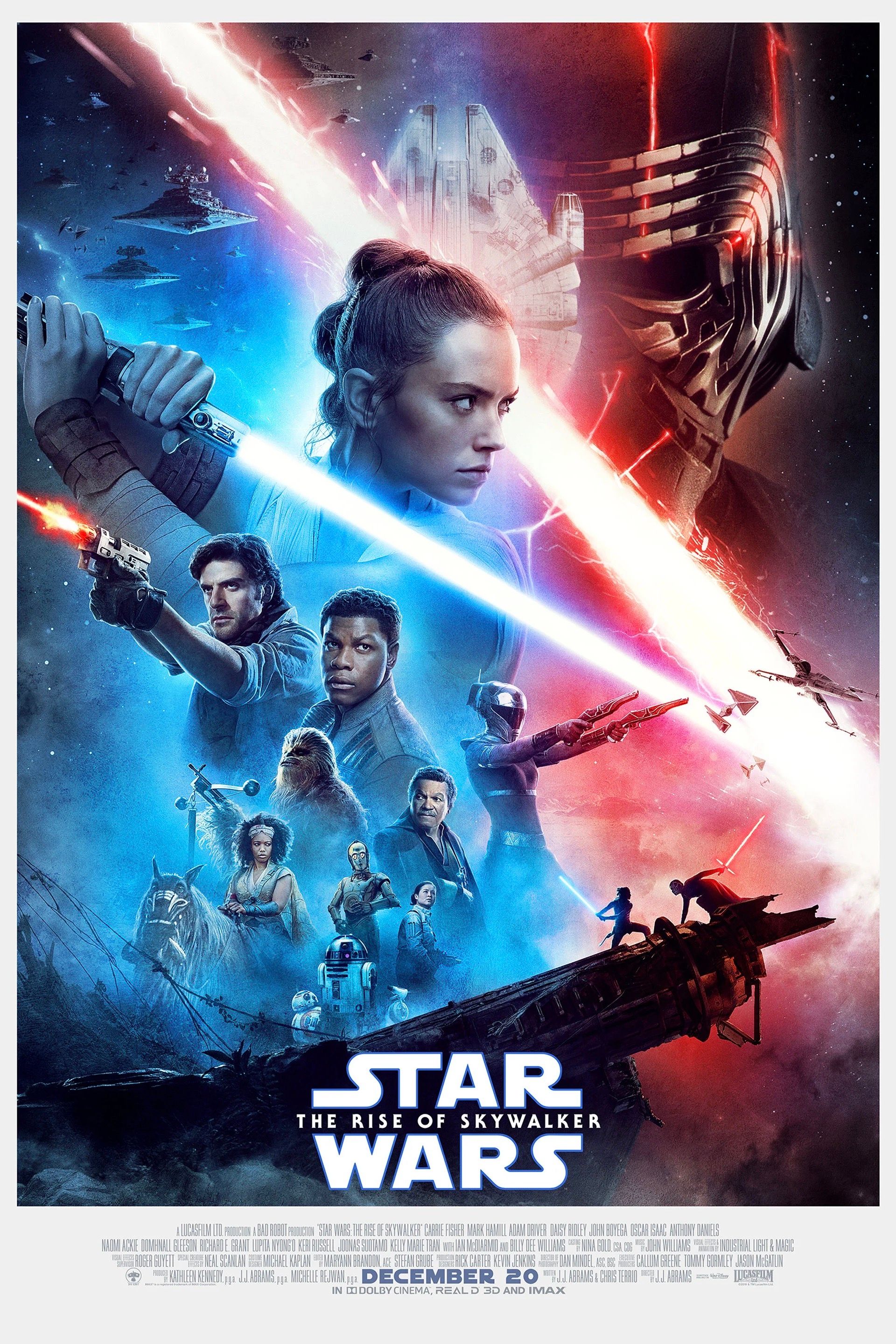Solo: A Star Wars Story opened to disappointing box office this weekend. This is leaving a lot of questions about the future of Star Wars, but perhaps the most pressing is how those early estimates got it so wrong.
The opening Memorial Day weekend release of Solo: A Star Wars Story was always mired in cynicism. Many critics and industry figures predicted it would be the first of the Disney era films in the franchise to under-perform, thanks to a variety of factors as well as the film's troubled production. Ron Howard's Han Solo spin-off made $103m over four days, making it the lowest tally for a Star Wars film since the Disney acquisition.
Related: Why Star Wars Movies Keep Bombing at the Chinese Box Office
There is much to be said about what this means for the franchise's future, and how it may impact planned productions, but for now, it's worth looking at that original estimate. Early predictions saw Solo making $150m over four days, a number that's impressively high but an expected part of blockbuster box office these days. Earlier Star Wars films had easily met that number but Solo spluttered. What led to this disappointment? There are various issues at play.
Is Star Wars Fatigue Really Happening?
It seems inevitable for a franchise with this kind of history, fan adoration and cultural impact to eventually wear thin with the masses. Once upon a time, we had to wait years or even decades for a new Star Wars film: Now, we’re getting a new one every year, with Lucasfilm allegedly planning a multi-film annual release schedule similar to the Marvel Cinematic Universe. What used to be an event, something you waited an agonizingly long time for, is now no longer special.
We are truly spoiled, but perhaps that’s ultimately a bad thing when it comes to a franchise like Star Wars. It’s only been five months since the release of Star Wars: The Last Jedi. Tracking something like this to show tangible results is difficult – we don’t have solid numbers to prove such fatigue has hit – but the general mood online and among movie-going audiences has been one of faint exhaustion.
Competition is Still Tough
Avengers: Infinity War has been in cinemas for five weeks now, but that hasn’t slowed down its meteoric box office profits. Even now, over a month into its domestic release, it's still grossing $17m over the most recent weekend. Alongside that release is Deadpool 2, which came out last week and, even with a 65% drop in gross, still took in $43.4m in its second weekend. For those general audiences who don't go to see every release and don't make it during the opening weekend, Solo: A Star Wars Story may not have been their top priority over two very popular established superhero properties, and estimates don't seem to have taken that into consideration.
The Summer Box Office is Waning in Power
Last year, the Summer domestic box office hit new lows for both profits and audience attendance. While there were major hits in the slate – such as Spider-Man: Homecoming – domestic ticket sales still dropped a staggering 14.6% from the previous year. Even supposedly safe bets like Transformers: The Last Knight and Pirates of the Caribbean: Dead Men Tell No Tales hit slumps with North American audiences. The major hits of 2017 – Jumanji: Welcome to the Jungle, Star Wars: The Last Jedi and Thor: Ragnarok – were Winter releases.
Related: Hollywood's Box Office Problems Are Its Own Fault
Outside of the record-breaking success of Avengers: Infinity War – and it’s still debatable whether an April release counts as a Summer movie – the slump has hit 2018 hard too. Even Deadpool 2 didn’t meet its original estimate in its opening week and made less in that period than the first film did. The Summer box office isn’t as mighty as it once was, but projections are yet to truly reflect that.
Did Audiences Want a Han Solo Movie?
The supposed necessity of a Han Solo spin-off prequel has been much debated, but many thought that the impervious nature of the Star Wars brand could carry anything to success. Rogue One: A Star Wars Story did well with audiences, but even then, the concept of a non-Skywalker centered Star Wars film was still a novelty that fans had to check out (it didn’t hurt that it was only the second Star Wars film released by Disney at the time). That provided an outlier that was likely used in calculations and so skewed them higher.
It will be a massive problem for Lucasfilm if they can’t entice audiences to their ever-expanding franchise beyond the appeal of Luke and Leia – especially with a Boba Fett movie supposedly already in the works and an Obi-Wan Kenobi prequel in the very early stages.
Middling Reviews
Solo didn’t get bad reviews, but the general consensus was one of the final product being mostly fine: nothing ground-breaking or radical, but decent enough. Films with middling reviews have done perfectly well with audiences before, but Solo wasn’t necessarily the kind of film that was review-proof. If general audiences were questioning the necessity of its existence and the reviews weren’t glowing enough to convince them to check it out for themselves, that may have had a bigger impact than the barrage of marketing. Industry figures naturally saw a Star Wars film as being above such notions, but that doesn’t seem to have been the case.
-
It’s still too early to write off the film, although international numbers have not been strong either. Solo: A Star Wars Story is a very expensive film with a lot of obstacles to overcome, but there is some fan love for it. Whatever the case, Disney and Lucasfilm’s strategies will probably be getting a second look this week.

